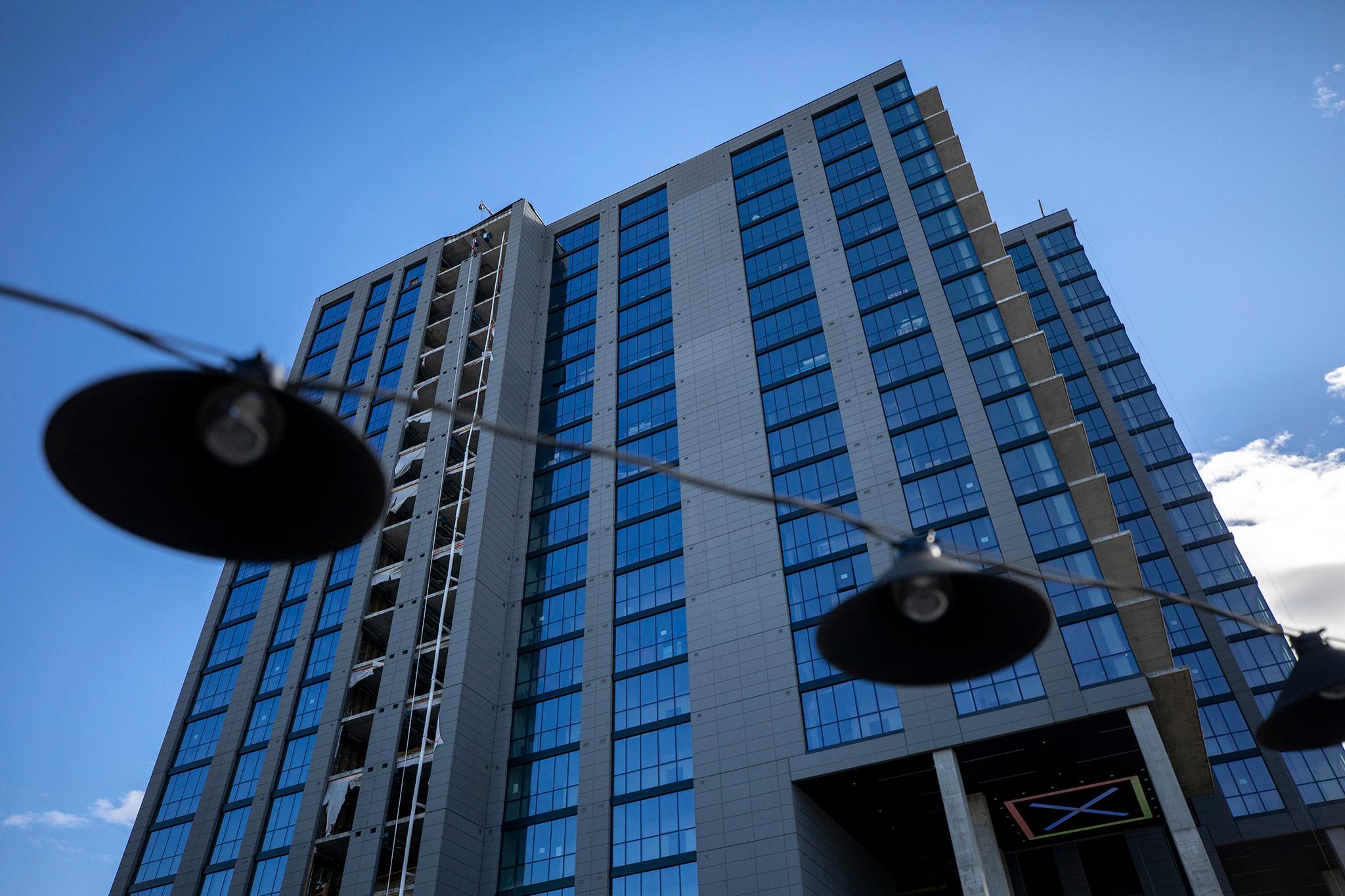Denver eviction defense attorney and head of the Colorado Economic Defense Project Zach Neumann is worried about his team's ability to help people stay housed.
In recent years, eviction defense attorneys have relied on federally funded emergency rental assistance programs at both the municipal and state level. But pandemic emergency funding is disappearing. Those city and state programs that kept people housed over the past few years have shut the door to new applicants.
And eviction filings continue to rise. In January, the city saw the highest number of evictions of any month since at least 2019: 1,101. That's nearly double the number of filings Denver saw in January 2022: 564.
"I think Emergency Rental Assistance was an incredibly powerful tool to keep people in their homes, and now that the State portal is closed and that has become significantly less accessible, it is much, much harder to stop evictions," Neumann said. "It's much harder to strike deals with landlords, and a larger volume of our clients are getting referred to the legal services part of our organization. But again, if you can't pay the rent and you've got a lawyer, your upcoming court date is often not a good one."
Though Denver offers free legal representation to residents facing eviction who make less than 80% of the area median income, or $80,500 for a family of three, those programs are only as good as the resources the lawyers have to help people catch up on rent or satisfy their landlords.
Neumann said every day more people are reaching out to his organization for legal support or rental assistance. But finding money to help people catch up on rent is increasingly challenging.
"It's a really troubling and scary time in the work," Neumann said.
Drew Hamrick, a senior vice president with the Colorado Apartment Association, said he has not had a chance to review the latest numbers. Looking at the general trend over the past year, he has maintained that Denver's eviction-filing rate has returned to pre-pandemic norms.
But those numbers are now higher. Over the past 12 months, the city saw 9,416 eviction filings. Compare that to the average number of annual eviction filings from 2009 to 2019: 8,999.
"We've seen a considerable step up since last January," Neumann said. "That's due to a combination of a lot of the federal programs designed to stop evictions ending, combined with a dramatic increase in the cost of rental housing,"
He's heartened that the state legislature is looking at multiple housing-related bills, including one introduced last week by state representatives Javier Mabrey and Serena Gonzales-Gutierrez and state senator Julie Gonzales, dubbed Just Cause Eviction.
If passed, Just Cause Eviction would offer tenants additional protections from eviction, ensure tenants have a legally protected right to stable housing, encourage tenants not to self-evict after receiving an eviction notice, and protect tenants from retaliation when they raise concerns over living conditions, discrimination or other misdeeds from landlords.
The bill would also make landlords conducting no-fault evictions -- for repairs, renovations or to live in the property -- pay tenants two months of rent plus an additional month for renters with someone under 18 or older than 60 living in the home, low-income individuals and people with disabilities.
"A couple of weeks ago, the White House put out their Tenants' Bill of Rights," Mabrey said. "They called on changes at the federal level and changes at the state level to help renters, because the White House is invested in preventing new cases of homelessness"
One of those recommendations was just-cause eviction legislation.
"Essentially what this legislation does is it prevents landlords from removing tenants who are in good standing," Mabrey said. "Right now we see a lot of evictions that take place because somebody's lease expires or because somebody has a month-to-month tenant. And the tenant is otherwise in good standing or otherwise caught up on their rent. They're otherwise not violating the lease. And this sort of unnecessary displacement adds to the housing crisis here in Colorado."
Tenants who are evicted and have to find new homes need enough savings to pay the first and last month's rent plus a deposit, which can altogether cost upwards of $6,000, Mabrey said. That means people have to leave the communities they're in for cheaper places.
"That sort of displacement prices people out of the communities that they work in," Mabrey said. "We have a labor shortage in this state. Teachers and nurses are having trouble staying in the communities that they work in, and this bill aims to prevent unnecessary displacement."
If the bill passes, that economic burden would be put on the landlord.
Hamrick, of the Colorado Apartment Association, says it's unfair to put extra costs on housing providers. He added that making it tougher to terminate a lease makes landlords less likely to take on high-risk tenants and that the extra costs of terminating a lease will also likely drive up rent prices.
Hamrick's trying to fight many of the same bills eviction-defense attorneys are eager to see passed, arguing landlords who provide housing need rights, too. Expanding tenants' rights beyond those already included in a traditional lease will reduce the number of people willing to invest in building and renting housing and will ultimately backfire, he said.
Outside of the Apartment Association, Mabrey's convinced the Just Cause Eviction bill has extraordinary support and is confident it will pass committee in early March.
Neumann hopes both state and federal lawmakers also consider making more money for emergency rental assistance available.
The strategy proved successful for both tenants and landlords during the first years of the pandemic, he said.
"I think emergency rental assistance was an incredibly powerful tool to keep people in their homes," he said. "Now that the State portal is closed, that has become significantly less accessible."











